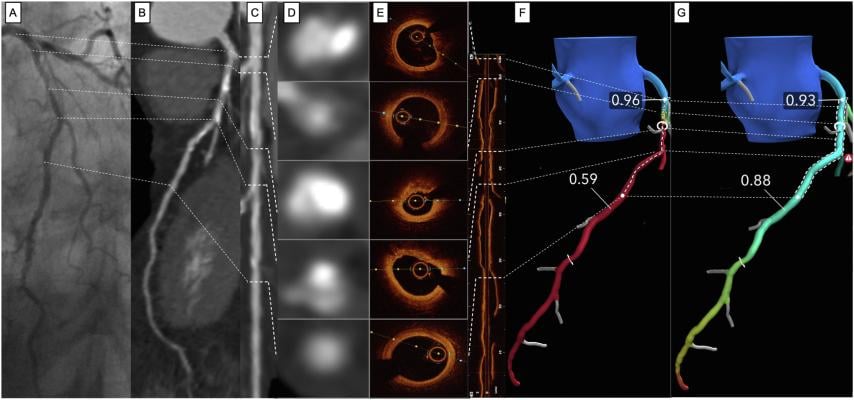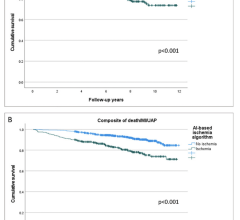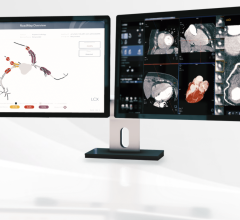
September 13, 2022 — The latest expert consensus document from the Society of Cardiovascular Computed Tomography (SCCT), co-published with EuroIntervention, describes Coronary CT Angiography (CCTA) as an effective tool for interventional cardiologists to prepare and optimize the coronary procedure.
“Pre-procedural Planning of Coronary Revascularization by Cardiac Computed Tomography,” published in Journal of Cardiovascular Computed Tomography (JCCT), states that CCTA combined with fractional flow reserve (CT-FFR) or stress CT myocardial perfusion imaging (CT-MPI) can provide a comprehensive anatomical and physiological roadmap for coronary revascularization.
The expert consensus document explains that CCT may emerge in the field of interventional cardiology as no longer “a mere diagnostic tool,” as it was when first introduced into clinical practice more than 15 years ago.
According to the writing group, led by Daniele Andreini, MD, PhD, FSCCT of Centro Cardiologico Monzino in Milan, Italy, the potential value of CCTA to plan and guide interventional procedures lies in the wide information it can provide, including its accuracy for plaque and calcium characterization.
Andreini and his co-authors explain that, with its 3-dimensional nature and physiological assessment, CCTA is the only non-invasive imaging modality to assess Syntax Score and Syntax Score II, which enable the Heart Team to select the mode of revascularization (PCI or CABG) for patients with complex disease based on long-term mortality.
Additionally, CCTA may help in identifying anatomical characteristics of chronic total occlusions (CTO) that are associated with increased complexity of CTO percutaneous coronary intervention (PCI).
Before PCI, CCTA has the potential to be used to overcome some limitations of conventional invasive coronary angiography (ICA), including vessel foreshortening and difficulties in selecting optimal projections, with particular importance in bifurcation and ostial lesions.
For more information: www.scct.org


 July 23, 2024
July 23, 2024 









